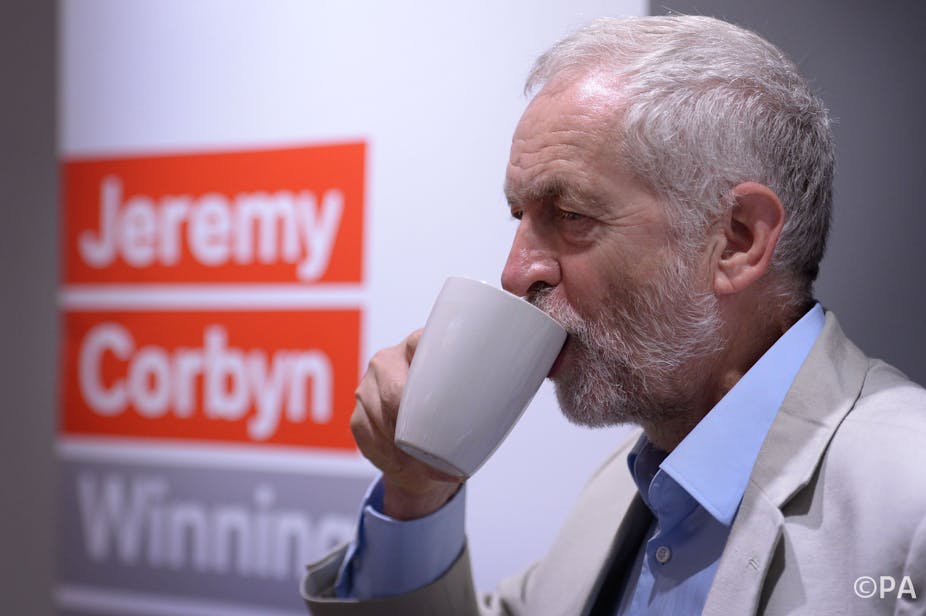It is a fact of British life that leaders of the Labour Party have the disadvantage of dealing with a fiercely partisan press with an in-built Conservative bias. But, according to two research reports from the London School of Economics and Birkbeck College/Media Reform Coalition, this antipathy has reached new levels of vitriol.
The LSE study was conducted well before the post-Brexit debacle, in the first two months of Corbyn’s leadership. This, it turns out, was less of a “honeymoon” period than a trip to a war zone. The report found that Corbyn was subject to repeated ridicule and vilification that “went well beyond the normal limits of fair debate and disagreement in a democracy”. It also said that the new leader was “often denied his own voice” and that anti-Corbyn sources were favoured over pro-Corbyn voices.
The report acknowledged that this was “not an entirely new phenomenon in the UK and has happened before in relation to other left-wing leaders from Neil Kinnock to Ed Miliband” – but the authors suggested that “in the case of Corbyn the degree of antagonism and hatred from part of the media has arguably reached new heights”.
The report by Birkbeck/Media Reform Coalition deals with the more recent period, covering a ten-day period following the wave of resignations until the report of the Chilcot enquiry. Unlike the LSE report, the researchers look at the leading online and broadcast media – the latter is subject to strict rules of impartiality.

This was, of course, a torrid time for the Labour Party, but the researchers examined whether the divisions within the Labour Party were reported even-handedly. Despite the strict rules governing impartiality, the report found that – like the LSE study of the press – Corbyn critics were, by significant proportions, preferred to Corbyn supporters, both in terms of agenda setting and voice.
Particularly striking, here, was the role of BBC news. The report found that the BBC was consistently more “anti-Corbyn” than ITV. So, for example, while both channels tended to frame stories in ways that were critical of Corbyn, this imbalance was overwhelming on the BBC. While ITV news gave Corbyn and anti-Corbyn voices equal time, the BBC favoured anti-Corbyn voices by a ratio of two to one.
Although the sample size was fairly small, 465 online articles and 30 prime time broadcast reports, this research fits a pattern to have emerged in recent years suggesting the BBC has drifted to the right and has become increasingly likely to follow the partisan agenda of a right-leaning British press.
Mutual hostility pact
Either way, Corbyn has clearly received a media mauling – not just from the usual suspects in the press but from broadcasters. Many journalists would claim that Corbyn’s team made a bad situation worse, by adopting an antagonistic or dismissive attitude, increasing hostility on both sides. The key questions here are these: could a left-wing leader of the Labour Party ever receive more even-handed coverage from broadcasters or less vitriolic treatment from the press? Or, to put it another way, had Corbyn been full of media savvy and PR acumen would things have been any different?

My fellow academics would see this question as a debate between structure and agency. Some would argue that the structure of media in the UK – one in which wealthy, right-wing press proprietors play a dominant role in setting the media agenda – means that the left will always be on the back foot. If Corbyn’s treatment has been particularly rough, it is because he is more left-wing than his predecessors.
Others would suggest that, despite this imbalance, many journalists still have a degree of agency and independence. Some might respond more positively to well-presented, strategically smart left-wing leadership. Not an enthusiastic embrace, perhaps, but an accommodation made with a degree of seriousness and respect.
The truth, I suspect, lies somewhere between the two. Tony Blair received better coverage in part because he pushed Labour to the right, but also because, in PR terms, his team were slick, clever and strategic (so much so that they became associated with “spin” rather than substance). For many on the left, the shift to the right and good PR are inextricably linked. This is, in my view, a mistake.
While a left-wing leader such as Corbyn is more likely to antagonise the modern day press barons by arguing for media reform – in favour, for example, of Leveson’s proposals for press accountability, and for more diverse media ownership – this requires him to be even more savvy and strategic than Blair’s team.

Simon Wren-Lewis – one of shadow chancellor John McDonnell’s high-powered economic advisory team – argued that Corbyn needed to base his leadership on those areas where his brand of politics has a degree of popularity and consensus – notably on anti-austerity, support for public services and lessening inequality – and he needed to show both popular flair while conducting a charm offensive on his parliamentary colleagues. This might not have assuaged the hardcore Blairites, but it may have carried most of the Parliamentary Labour Party (PLP), as well as offering something tangible for the more open-minded sections of the media.
While there were some efforts to do this (after a shaky start, McDonnell, has emerged as a more effective performer than his boss), there have been too many failures – both of leadership and strategy. The Labour Party appears, Wren-Lewis writes, to be on a path of mutually assured destruction, with the most of the PLP and the majority of Labour members adopting increasingly entrenched positions.
The solution is more about cleverness than it is about compromise. To gain the support of the membership, the next Labour leader will need to advance a more left-wing agenda than his post-Blair predecessors. But they will need to have the strategic and PR skills to carry most of the PLP and enough members of the public to win an election.

